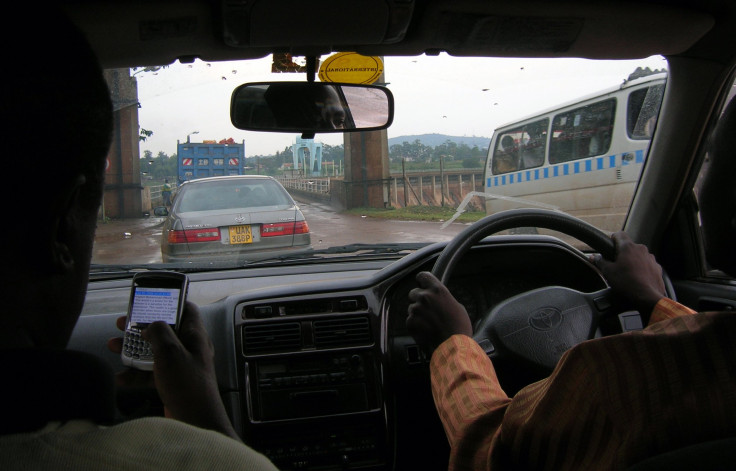Greater Cellphone Coverage In Africa Leading To Heightened Political Violence

As the African population explodes this century, the spread of cellphone coverage across the continent has led to greater political violence, particularly in areas prone to structural instability.
Although much of the cellular coverage lacks reliable and robust Internet access, more than 649 million cellphone users in Africa now compose the world's second largest market for mobile technology, after only Asia. The greater networking capability enables groups to better coordinate collective actions, such as rebellions against government rule, according to research from U.S. and German researchers published in American Political Science Review.
The introduction and widespread adoption of cheaper mobile technology in Africa — growing at 20 percent per year since 2007 — has spurred economic growth and brought countless benefits, including the health, familial, and societal sort. But just as wireless technology aided the Arab Spring that swept dozens of Middle Eastern and North African countries during the past couple of years, militant groups in virtually every country now find significantly greater ease in organizing, monitoring in-group behavior, and communicating across vast expanses of territory.
Among other conflicts, international observers focused on the continuing fighting in Nigeria, a country growing to more than 300 million people by mid-century, as the government declared a state of emergency in the northeast and a renewed effort to oust the Islamist militant group Boko Haram from the territory.
"The availability of cell phones as a communication technology allows political groups to overcome collective action problems more easily and improve in-group cooperation, and coordination," the researchers wrote. "Utilizing novel, spatially disaggregated data on cell phone coverage and the location of organized violent events in Africa, we are able to show that the availability of cell phone coverage significantly and substantially increases the probability of violent conflict."
However, the researchers said the benefits of cellphone technology vastly outweigh adverse repercussions in the initial stages of adoption.
"We do not believe that the spread of cell phone technology has an overall negative effect on the African continent," the researchers wrote. "The increase in violence induced by better communication might represent a short-term technological shock, while the positive effects of better communication networks on growth and political behavior may mitigate root causes of conflict in the long run."
Although the political violence was most pronounced in areas prone to structural instability, the effect was seen in virtually every country in the continent. The researchers recommended more research to determine how communication technology influences various forms of collective action in Africa, for better or worse, noting that cellphone coverage in Iraq had been associated with the exact opposite — a decrease in insurgent violence, as described last year by political scientists.
While cellphone technology at once provides a tool to insurgent groups, the same can be said for counter-insurgents. During the latter years of the U.S.-led war in Iraq, American and Iraqi forces were helped by ordinary people with cellphones, blowing the whistle on violent anti-government operations. In that study, the authors "find that the expansion of the cellphone network in Iraq is associated with decreases in successful violent attacks by insurgent forces," the researchers wrote. Similarly, other investigators argue that while cellphones in Africa "might empower rebel groups and produce more violence, there also exists the potential for a reduction in violence through improved monitoring for international peacekeeping or governmental forces, although such efforts have been rare so far."
With regard to Africa, many investigators have focused on the positive economic benefits of the technology, but not much has been said about the direct effects on the political realm.
One study of Mozambique, though, shows that cellphone technology has been used for voter education and to increase political participation in elections, in addition to greater controls on accountability of government officials. And in Namibia, cellphone use has led to decreased levels of corruption with a quicker, more decentralized information environment.
In the study, researchers at Duke University and the German Institute of Global and Area Studies plumbed data from 1989 to 2011.
Source: Pierskalla JH, Hollenbach FM. Technology And Collective Action: The Effect Of Cell Phone Coverage On Political Violence In Africa. American Political Science Review. 2013.
Published by Medicaldaily.com



























